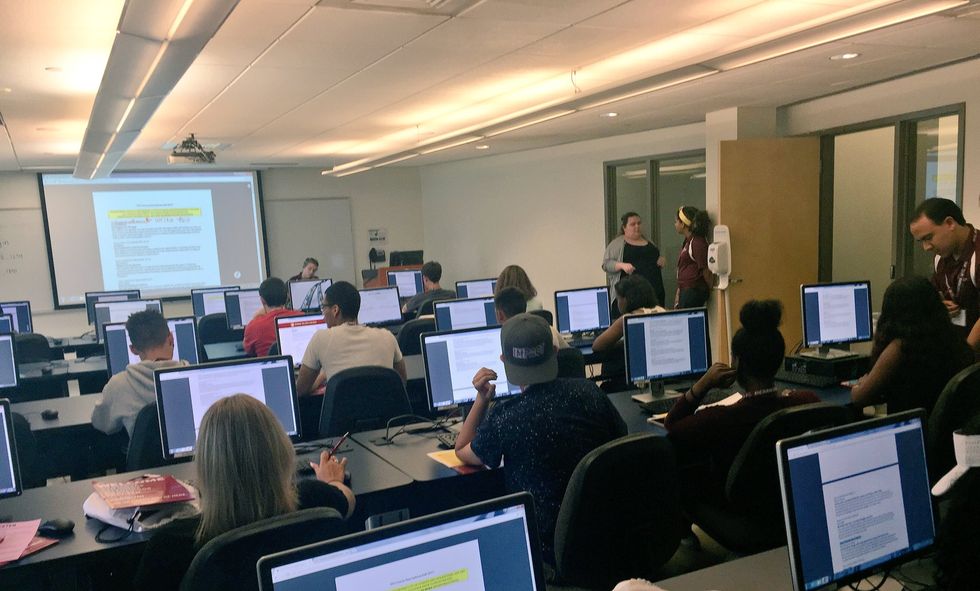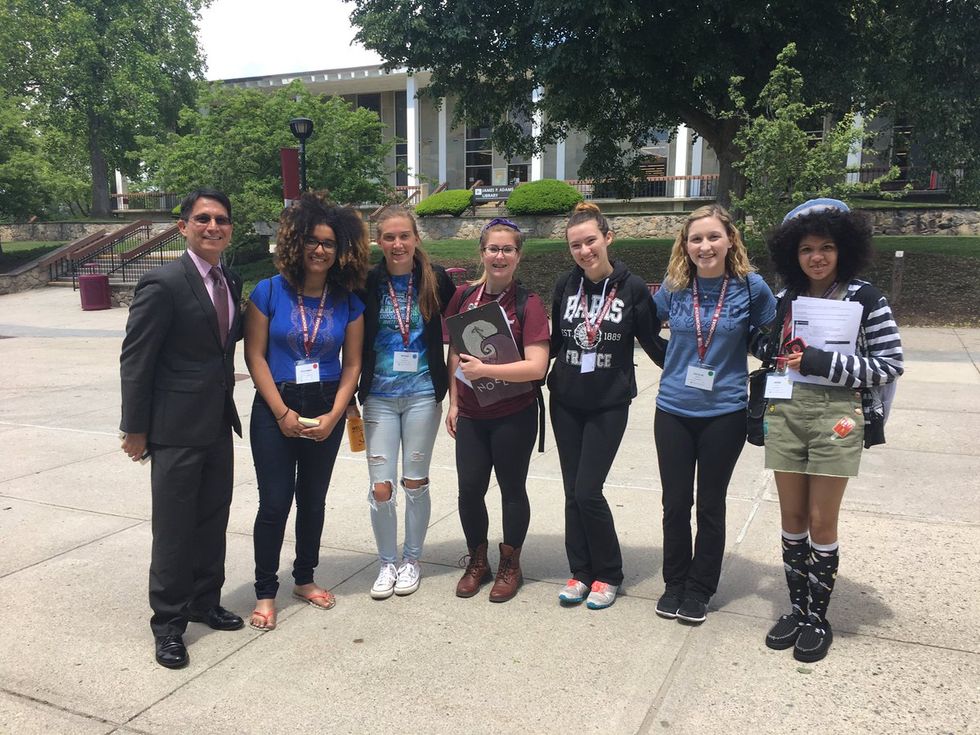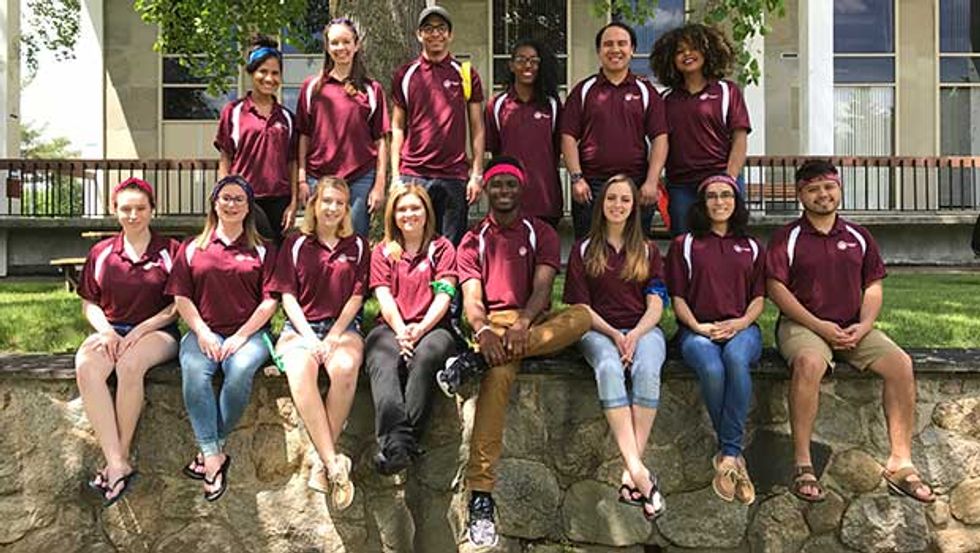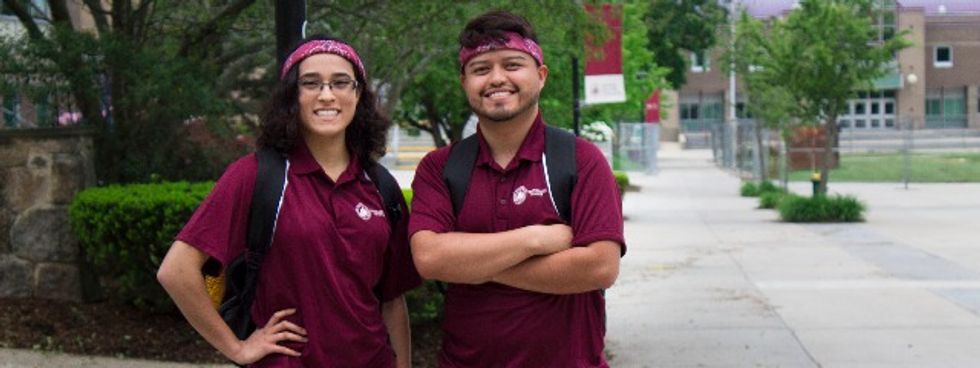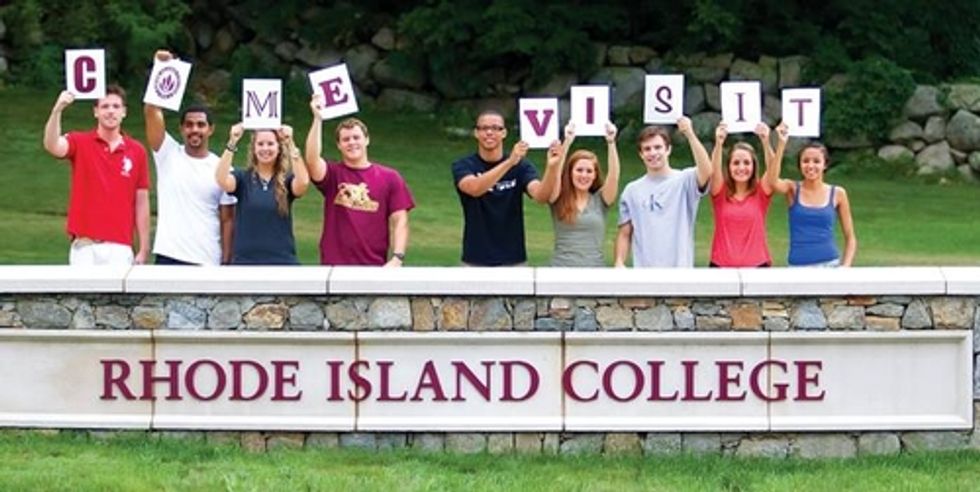1. Summer employment.
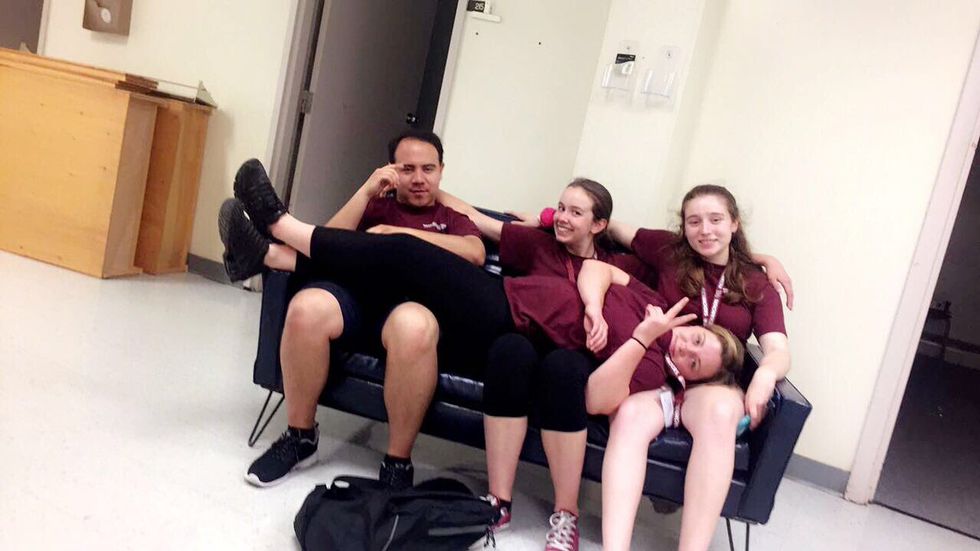
This is pretty self-explanatory. Colleges budget out tons of money to hire Orientation staff and run an orientation program. The orientation team goes through training and may take weeks to prepare before the first session even starts. Yes, orientation is during the summer and you may be working long hours but it's not always business. When there's downtime during the RIC orientation, you can catch the team heading to downtown Providence for a night out (that includes things like PVD Fest, PVD Pride or just visiting the Providence G). Not to mention the pay is pretty good and most colleges include room and board.
2. You form unlikely friendships.
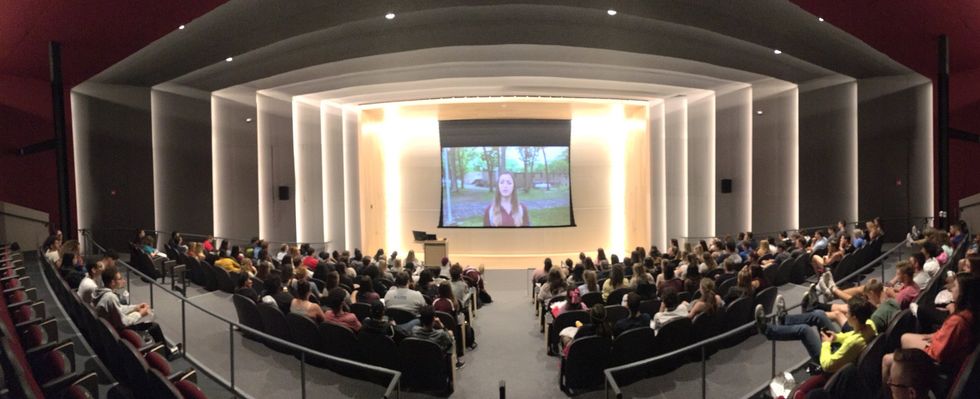
As an orientation leader, you probably represent a population of students the college would like to highlight. Whether you are a student athlete, a dancer, in a fraternity or sorority, a commuter or just a low-key student that isn't super involved but does really well academically, you are part of an orientation team that is made up of different students with different identities. You may get lucky and get hired with a friend, but be aware that you will be living with them for more than a month and will be around them constantly. This time together puts you in a position where you get to learn some much about people in such a short period of time. You're living together, eating meals together, and maybe even doing face-mask movie nights together. You practically become family.
3. You directly impact the culture at your school.
Doing orientation is the perfect way to impact what you would like to see on your campus and encourage others to get involved. If you would like to see more school pride, you can do that. As an orientation leader it is your job to lead new students and introduce them to your campus. If they see that you appreciate your school, so will they.
4. New students look to you for guidance.
One of the main reasons why students attend orientation is for that all important college schedule. Although you cannot advise them because there is a certification required, you can help them become familiar with the system to add/drop classes. Remember, this is the first time they are seeing any of this so it may be a little stressful.
5. You learn a lot about your school.
It would be a little awkward if a new student asked you "Who is the president of Rhode Island College?" and you didn't know it is Dr. Frank D. Sanchez. During orientation training, you not only get to learn more about the different departments of the college but directly meet faculty/staff and get to ask them questions that new students may ask.
6. You feel part of your college when you work for it.
Once you've gone through the training and meet the wonderful people that dedicate their careers to help college students, you grow a new appreciation for your college. You also realize that you and the rest of the team are responsible for welcoming new students, and ensuring that they have a good experience and remain enrolled in the college.
7. You are the first face new students encounter.
If you think back to your own college orientation, how was your orientation leader? Did you feel welcomed or did they show little excitement for their job? As an orientation leader you not only represent yourself but you represent the college. You do not have to have had a great experience at your own orientation to apply to be an orientation leader. It may be that you did not have a good experience and would like to have some say in how to make the program better. College can be intimidating, especially if you're going in not knowing anyone. You are the first face to so many new students. As an orientation leader, you can make a difference for a student that would otherwise be ignored in the large pool of incoming students.


